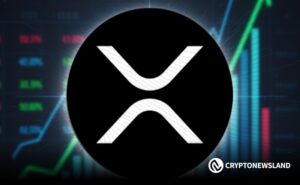- Japan plans to classify 105 crypto assets as financial products and introduce a flat 20% tax rate.
- New rules require exchanges to disclose full token details and improve clarity for all digital asset investors.
- Regulators aim to prevent insider trading in crypto markets and support fairness through stronger oversight.
Japan is moving toward a major overhaul of its crypto asset framework as regulators push for stricter oversight and clearer tax rules. The Financial Services Agency plans to reclassify 105 digital assets as financial products. This step will place major tokens, including Bitcoin and Ethereum, under the Financial Instruments and Exchange Act. The update marks a major shift from the current tax system that treats crypto gains as miscellaneous income.
New Tax Structure Targets Consistency
The proposal introduces a flat 20% tax on gains from the approved 105 assets. Traders currently face rates that reach 55% under existing rules. The new tax approach aims to create consistency with stock trading and bring digital assets closer to traditional product standards. Regulators plan to submit the amendment bill to the National Diet by 2026. However, ongoing negotiations may move the tax revision into next year’s national budget.
Disclosure Rules Strengthen Oversight
The reclassification also introduces stronger transparency requirements for exchanges. Platforms must reveal detailed information for each approved token. These disclosures include the presence or absence of an issuer, the underlying technology, and key volatility risks.
Authorities want investors to understand the full structure of every asset they purchase. The framework aligns digital assets with existing financial regulations designed to protect market participants.
Uniform Standards Across All Tokens
Japan’s exchanges currently follow guidance from the Japan Virtual Currency Exchange Association. The group maintains a green list of vetted tokens that includes BTC, ETH, MATIC, XRP, and LTC. With the new plan, all 105 tokens traded domestically will follow equal standards.
This uniform approach intends to improve clarity for exchanges and support stronger investor confidence. Compliance with strict and consistent rules may also reduce gaps in oversight across platforms.
Crackdown on Insider Trading
Regulators also plan to introduce limits on insider activity linked to token events. Individuals with early access to sensitive details will not be allowed to trade assets based on those details. The restrictions cover future listings, delistings, bankruptcy actions, and similar market-moving events. Authorities aim to reduce unfair advantages and support a cleaner trading environment.
Updates to Exchange Requirements
Domestic exchanges will continue to operate under a registration system. However, a new notification process will apply to individuals who manage core operations within an exchange. Japan will also maintain limits that prevent banks and insurance firms from selling digital assets to retail clients. Officials want to separate traditional financial services from high-risk crypto activities to reduce exposure for everyday consumers.
Stablecoin Pilot Moves Forward
As regulators advance the reclassification plan, Japan’s major banks are running a stablecoin pilot. MUFG, SMBC, and Mizuho are testing a system for issuing regulated bank-backed stablecoins. The pilot will assess how current rules support controlled issuance under FSA oversight. The results may influence broader policy decisions as Japan evaluates the future of digital asset regulation.



